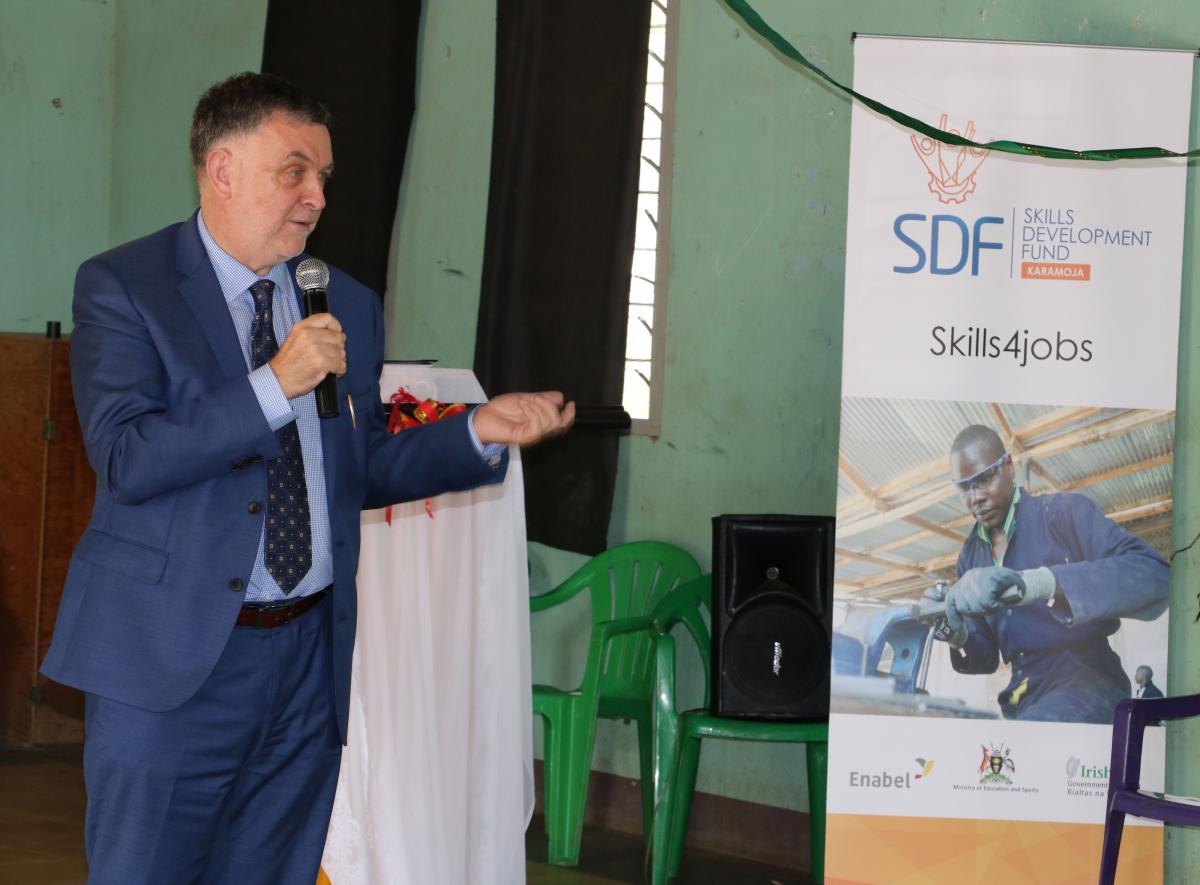Launching the business plans of our partner institutes in Karamoja
Economic and political
partners from the local as well as the national level gathered on the 21st
and 22nd of May at St.-Daniel Comboni in Moroto and Nakapiripirit
Technical Institute to admire the institutes’ newly edited business
plans.
The Support to Skilling Uganda
project (SSU) with financial support from Irish Aid, assists these two partner
institutes in Karamoja to become modern, relevant and demand driven Centers of
Excellence for a particular trade. While St-Daniel Comboni focuses on
Construction, Nakapiripirit TI specializes in Agro-business and Agriculture.
The first step in this process
is the development of business plans to guide the institutes in their
transformation. Irish Ambassador Findbar O’Brien added that “Development partners, local and central
government must work together to offer practical solutions to improve the
quality of education, for instance through the involvement of the private
sector. ” This idea of public-private-partnerships to strengthen skills development is a guiding principle in the Skilling Uganda strategy.
Through internal
self-assessments and external management coaching, both technical Institutes
created their own business plan. They worked out their performance indicators,
based on the Skilling Uganda Strategy, to set realistic targets and
follow up on their objectives. Commissioner
for Economic Policy and Planning , Mr. Fredrick Matyama added that “When the
training makes people skilled, it will carry to others. That’s how we will make
Business, Technical and Vocational Education (BTVET) more respected.” SSU Karamoja shall soon start an awareness
campaign with such role models to attract Karamojong youth, and especially
girls and women, to BTVET.
Based on the business plans,
SSU shall assist the institutes with infrastructural improvements, management
training, relevant equipment and coaching in terms of improving work-based
learning practices, assessing market relevance of training programs, training
of trainers, career guidance, tracing of graduates, etc. An additional aim is to feed the lessons
learned from the implementation of the Skilling Uganda strategy in different
regions into the educational reform process on the national level.
Latest news from this project
No news

